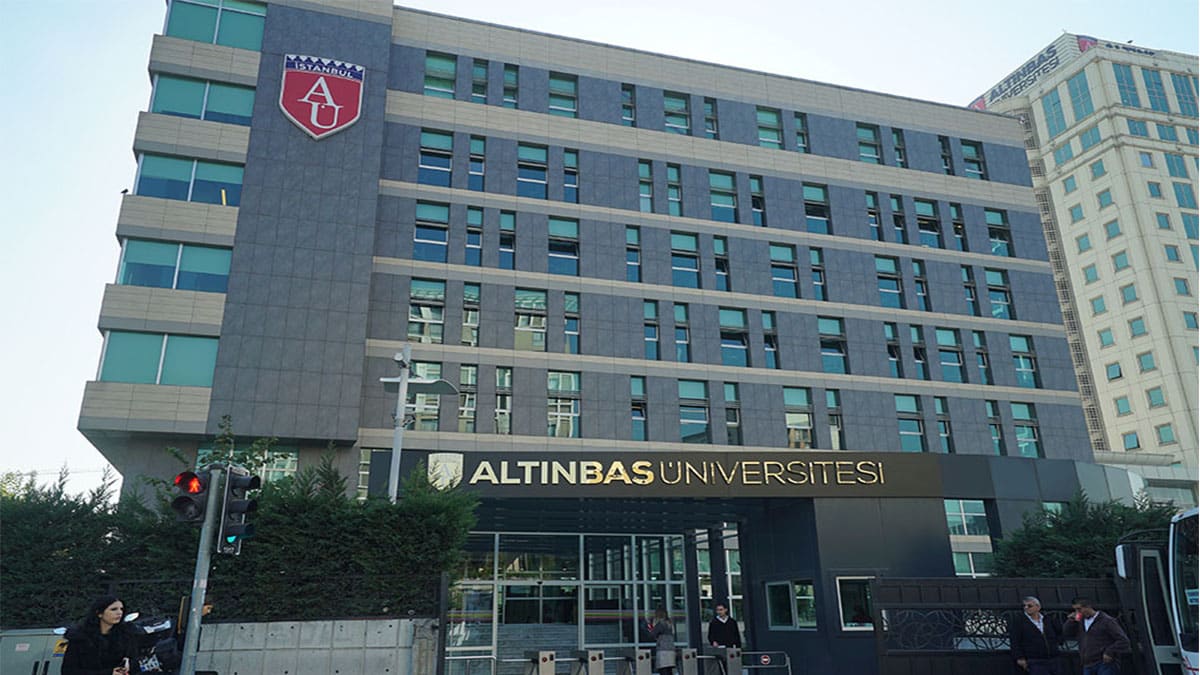Materials science and nanotechnology engineering
Specialty
Degree
Bachelor's
Master
PhD
Language
Turki, English
Duration
4 Years
Start Form
8977$
جدول المحتويات
The study of materials science and nanotechnology engineering plays a crucial role in the modern technological world. Materials science focuses on the detailed study of the mechanical and chemical properties of materials, while nanotechnology engineering involves designing and manufacturing materials at the nanometer scale.
This field is applied in various technologies, including heavy industries, electronics, medicine, and energy. Highlighting the significance of materials science and nanotechnology engineering in improving performance and efficiency across these diverse sectors is essential. In this article, we will explore the key details related to this specialization.
What is the Materials Science and Nanotechnology Engineering Program?
The Materials Science and Nanotechnology Engineering program is an academic program focusing on the nano-scale properties and applications of materials. This program combines materials science and engineering with nanotechnology techniques, including studying materials at the nanometer scale (one-millionth of a millimeter) and the multiple applications of these technologies.

The goal of studying this specialization is to understand the physical and chemical properties of materials at the nanometer level, develop and design materials with enhanced properties and advanced applications, and use nanotechnology in various fields such as electronics, medicine, energy, and the environment.
Studying Materials Science and Nanotechnology Engineering in Turkey
Turkey has become a prominent destination for studying materials science and nanotechnology engineering in recent years. The country boasts several universities and institutes with a global reputation in materials science and nanotechnology, such as Boğaziçi University in Istanbul and Sabancı University in Ankara.
Turkey places significant emphasis on scientific research in nanotechnology and materials science. There is robust cooperation between universities and industries to develop practical applications of nanotechnology. Additionally, Turkey is equipped with modern research facilities that support research and development in materials science and nanotechnology.
Furthermore, Turkey actively participates in international conferences and forums on materials science and nanotechnology, enhancing international cooperation and knowledge exchange. The country offers diverse study programs in materials science and nanotechnology engineering, including undergraduate, master’s, and doctoral studies, allowing students to specialize and focus on this field after completing their bachelor’s degree.

What Do Students Learn in Materials Science and Nanotechnology Engineering?
During their undergraduate studies, students in this field take fundamental courses that help build a scientific foundation, aiding them in securing prestigious job opportunities later on. The specific courses may vary from one university to another, but the following are key subjects typically covered in this specialization:
- Core Subjects in Mathematics and Science: These include physics, chemistry, and mathematics, providing an understanding of the physical, chemical, and mathematical phenomena necessary for materials science and nanotechnology engineering.
- Materials Science and Nanotechnology: This includes studying the microscopic properties of materials at the nanometer level and how to control and apply them in designing and developing materials.
- Engineering Courses: Subjects such as dynamics, statics, mechanics of materials, and engineering design are covered.
- Quantum Science: This involves the basics necessary to understand molecular and atomic behavior at the nanometer level.
- Nanotechnology Engineering: This focuses on techniques and methods for manufacturing systems, devices, and materials at the nanometer scale, including courses like nanomanufacturing, thin film nanotechnology, nanoelectronics, and nanomaterials.

Students also have the opportunity to choose elective courses that align with their interests and future specializations. These electives can include topics like nanobiology, thin films, or nanoelectronics technology. Additionally, students acquire various skills, such as:
- Deep Knowledge of Material Properties: Understanding chemical and physical interactions at the nanometer level.
- Manufacturing and Analyzing Nanomaterials: Proficiency in techniques like Scanning Electron Microscopy (SEM) and Transmission Electron Microscopy (TEM).
- Designing and Developing Materials: Improving properties and applications, including magnetic materials and nanopolymers.
- Advanced Laboratory Techniques: Working with sophisticated laboratory equipment.
- Effective Communication and Teamwork: Collaborating within multidisciplinary research and development teams.
Duration of the Materials Science and Nanotechnology Engineering Program in Turkey
The duration of the Materials Science and Nanotechnology Engineering program varies depending on the academic level studied at Turkish universities. Typically, the undergraduate program takes four years to complete, according to the curriculum and chosen university.
Sometimes, students may need to master the language before enrollment, extending the study period to five years. This additional year is called the preparatory year for language.
You can register with us now at Safa Company, which will accept your university admission easily.
Safa Company is your first educational companion🎓 for communicating on WhatsApp🎓
Top Turkish Universities for Studying Materials Science and Nanotechnology Engineering
In recent years, several Turkish universities have begun offering programs in materials science and nanotechnology engineering to many international students. Given the importance of this field and its applications in numerous industrial sectors, many students are curious about which Turkish universities offer such programs. Below are some of the top Turkish universities providing this program:
- Istanbul Medipol University
- Istanbul Aydin University
- Istinye University
- Altinbas University
- Bahcesehir University
- Istanbul Gelisim University
- Istanbul Okan University
Note: For more details about each university, you can check the provided links.

Studying Materials Science and Nanotechnology at Altinbaş University
The Materials Science and Nanotechnology program at Altinbaş University is one of the important programs offered at this university. Therefore, it attracts many students who seek excellence in this field. This is due to the unique advantages that distinguish this university from other private universities in Turkey, as it offers high-quality educational programs with up-to-date curricula that keep pace with the latest developments.
Features of Istanbul AltinbaşUniversity
The university offers diverse study programs in the field of Materials Science and Nanotechnology at various academic levels, including bachelor’s, master’s, and doctoral degrees. Istanbul Medipol University is also characterized by a strong research system that supports scientific research in the fields of Materials Science and Nanotechnology, providing students with opportunities to participate in advanced research projects.
The university has advanced research facilities and equipment that contribute to enhancing the learning and research experience, including electron microscopes and nanoscale manufacturing equipment. In addition, Istanbul Medipol University has a distinguished and qualified faculty, renowned for their practical and academic expertise in the fields of Materials Science and Nanotechnology.
Furthermore, the university provides opportunities for industry engagement through partnerships and collaborations with major companies. It also offers a modern and advanced academic environment that encourages creativity and innovation in the field of Materials Science and Nanotechnology.
Cost of Studying Materials Science and Nanotechnology Engineering in Turkish Universities
The cost of studying this specialization in Turkish universities varies depending on the university and the study program. The average annual tuition fees at private Turkish universities offering this program range from $3,500 to $12,000. This variation reflects differences in infrastructure, quality of education, and student services provided.
In addition to university tuition costs, students should also consider living and accommodation expenses in the city where the university is located, which can vary based on geographic location and local living standards.
Private universities in Turkey often provide opportunities for students to obtain partial or full scholarships based on academic excellence or financial need, helping to alleviate the financial burden on students and their families.
Opportunities
Key Career Opportunities in Materials Science and Nanotechnology Engineering
Materials science and nanotechnology engineering offer a wide range of diverse and growing career opportunities due to rapid technological advancements and the increasing use of advanced materials. Some of the key career opportunities in this field include:
- Research and Development: Jobs in research and development within universities, research institutes, and technology companies, where engineers and scientists work on developing and innovating new materials and nanotechnologies.
- Technological Industries: Many industries, such as electronics, energy, medicine, and automotive, require experts in materials science and nanotechnology to improve performance and develop products.
- Medicine and Health: Applications of materials science and nanotechnology in medicine and health, such as developing biomedical materials and advanced medical tools.
- Renewable Energy: Research and development in materials and technologies to improve the efficiency of renewable energy, such as solar cells and batteries.
- Environment and Sustainability: Using materials science and nanotechnology techniques to develop eco-friendly materials and reduce negative environmental impacts.
- Electronics and Communications: Working on enhancing the performance of electronic devices and communications through the use of advanced materials.
- Manufacturing and Engineering Industries: Improving manufacturing processes and engineering techniques through the use of nanomaterials.
- Biotechnology: Developing biotechnologies and molecular biotechnology using nanomaterials.
Specialty Price for Materials science and nanotechnology engineering in Turkish Universities
| # | List of universities | Turkish | English | Enroll |
|---|---|---|---|---|
|
1 |
Yeditepe University |
- |
8977$ |
|
|
2 |
Sabanci University |
- |
19500$ |
Related Programs
Follow the latest programs
No related posts found.


